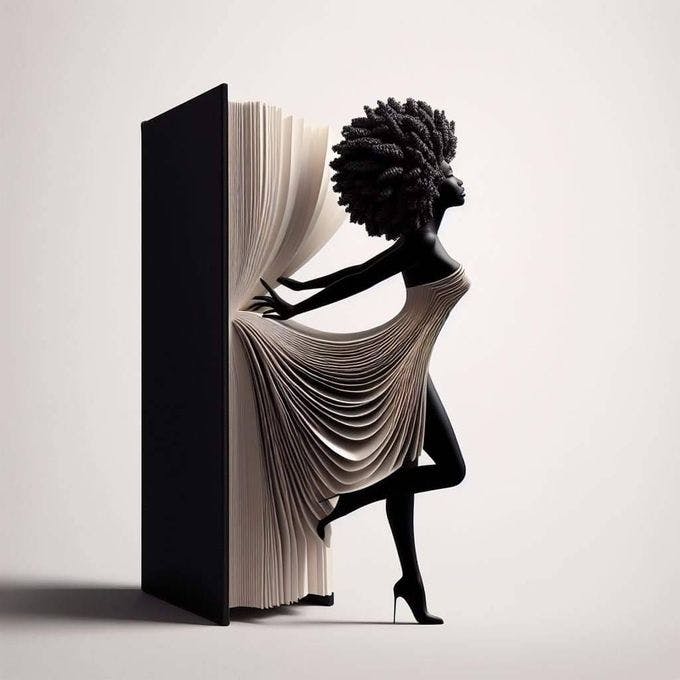Let Freadom Ring
Representation matters, and when we ban books that speak to who we are as people and the diversity among us, we silence entire communities and their allies.
by Susan E. Stutz

Photo by Shereese Floyd
My sisters and I were raised by our aunt, who was a voracious reader. There were books throughout our home. In bookcases. On table tops. Lost in bedding. Everywhere. We were brought up to read everything from science fiction to murder mysteries. Saturdays were spent in a local bookstore called The Paperback Shack where we would spend hours getting lost in the stories and dreams of others. Inevitably, we left with bags of new-to-us books, eager to embark on new journeys. Those books gave us access to an entire universe beyond our little neighborhood. As children, we lived, loved, and learned while losing ourselves in fiction and nonfiction alike. In doing so, we developed a love of reading that has remained with us our whole lives.
When I started working on my BA in women and gender studies, I was introduced to books I had never read before—concepts and words that I had never heard of, much less understood. The reading list was intimidating. I took a dictionary to every class and used it often. Over time, I learned to distinguish between the books that broadened my mind, and those that did not. Those that gave in to stereotypes, and those that excelled at representation. Those that indulged the “it’s always been that way” narrative and those that challenged it. Those that showed how narrow-minded people can be, and those that painted rainbows.
As cliche as it may sound, reading enriches the mind. It truly does. It substantiates belief systems and tears some down. Through books, we can be whoever we want. We can live a fantasy or see new worlds. We can see our world in a whole new light. And, we can learn. Learn that some centuries-old traditions should be put to rest. Learn that the book rarely matches its cover. Learn that the world is filled with exciting places and people in every color of the rainbow and that firmly held beliefs can be cast aside and replaced with a new worldview. That is what books did for me—they gave me a new perspective. Books have the power to change lives. Forever.
Those of you who have followed this blog know that I live in Florida. A state that has become so red in recent years that we look (and often feel) like we are on fire. And our state legislature has banned books like a duck to water, leading the nation in the effort.
According to Pen.org, more than 3,300 book bans were in the 2022-2023 school year (affecting more than 1500 separate titles). The vast list includes books on all topics, including religion, sexuality, and immigrants. And, you may think that there is no harm in having some of the books on that list banned. But, when you consider that a particular book may be someone’s only access to information, the ban may be viewed in a far more different and destructive way. Take, for example, Let’s Talk About It: A Teens Guide to Sex, Relationships, and Being a Human. For many years now, parents and schools have fought against the need for a sex education curriculum. And, if there is no curriculum for students, and they happen to be part of a family that chooses not to discuss the topic and books that openly discuss sex are banned, what avenue of education remains? None. Or almost none. Those with no fundamental understanding of their body and how it works are left to their own devices with all the potentially harmful consequences.
What about The 1619 Project and its efforts to set the record straight on slavery and racism in the US? Florida’s Governor Desantis called this type of reading “indoctrination” as though the Project tries to convince readers of some alternative, fantastical history having taken place in America. As though, our nation's cruel history is a boogeyman summoned by the liberal left.
Representation matters, and when we ban books that speak to who we are as people and the diversity among us, we silence entire communities and their allies. Silence is the name of the game, and banning books does this with cruel efficiency.
So, what can we do? We can work together to keep our local school boards free of individuals who want to whitewash our history and destroy our multiplicity. Elections matter, possibly even more so on a local level, as the entities that govern the minutiae of our daily lives tend to be within our local communities and schools. Take a look at Ballotpedia's information on school board elections. If your state is one with an upcoming election, please participate.
Do you want to write to your legislature on this or any other topic? Send resist to the bot and let your thumbs do the talking. Not sure what to say? Have no fear. Choose the new AI option for help, or other members of the Resistbot family have your back with these related petitions on fighting book bans or increasing protections on librarians.
Thank you to Elena and Chris.
Support the ’bot!
Upgrade to premium for AI-writing, daily front pages, a custom keyword, and tons of features for members only. Or buy one-time coins to upgrade your deliveries to fax or postal mail, or to promote campaigns you care about!
Upgrade to PremiumBuy Coins